Remember the victims of hate crime: fight fascism, racism and antigypsyism
23 July 2018
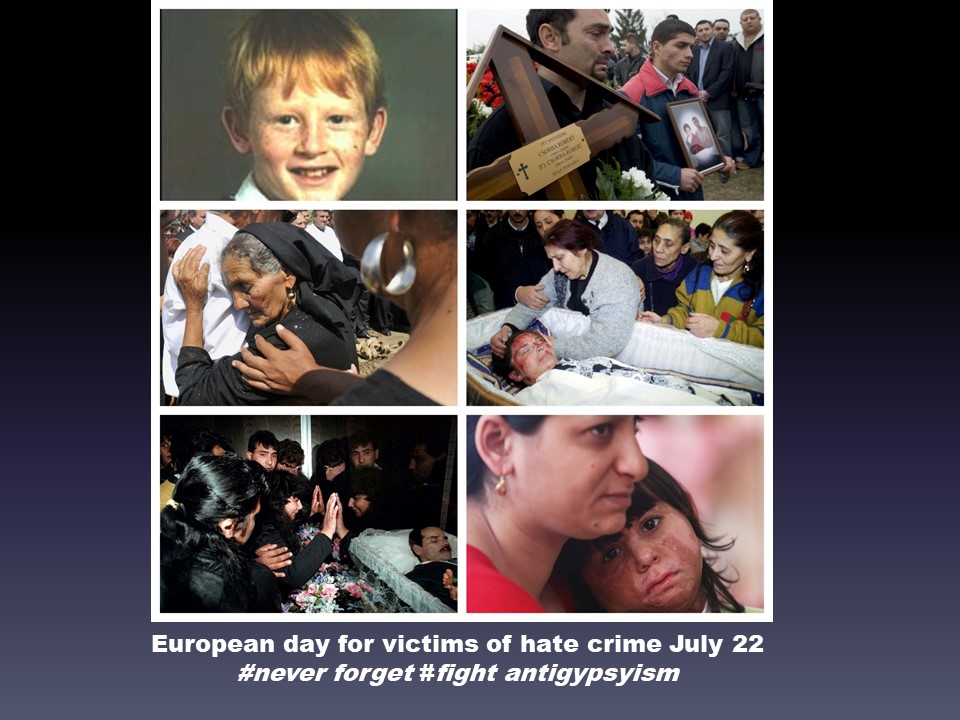
22 July marks the anniversary of the Oslo attacks and Utøya massacre that claimed a total of 77 young lives. The attacks were motivated by fascist ideology and racist hatred. On this day we call for concerted action against hate crime, and support for all victims of racist attacks. Over the last 30 years, Roma have been directly and repeatedly targeted by violent racist and fascists. Below is a reminder of just some of the men, women and children who have fallen victim to the lethal force of antigypsyism. We must never forget them.
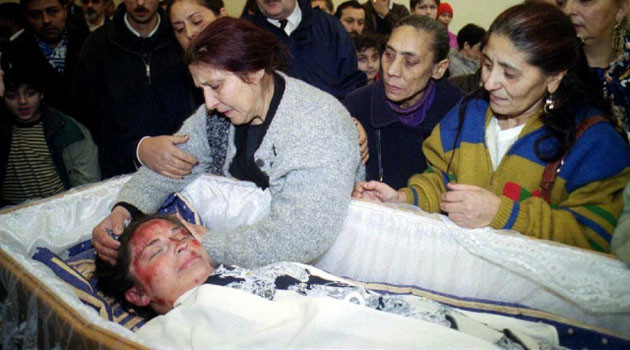 In February 1998, Helena Birhariova, a 26-year-old mother of four, became the 29th Roma known to have been killed in the Czech Republic in a racist attack since communism collapsed in 1989. She was beaten unconscious by three skinheads, then thrown into a river where she drowned. Cyril Svoboda, the interior minister said racially motived violence only accounted for 0.4% of all recorded crime. The public, he implied, were over-reacting to Mrs Birhariova's murder.
In February 1998, Helena Birhariova, a 26-year-old mother of four, became the 29th Roma known to have been killed in the Czech Republic in a racist attack since communism collapsed in 1989. She was beaten unconscious by three skinheads, then thrown into a river where she drowned. Cyril Svoboda, the interior minister said racially motived violence only accounted for 0.4% of all recorded crime. The public, he implied, were over-reacting to Mrs Birhariova's murder.
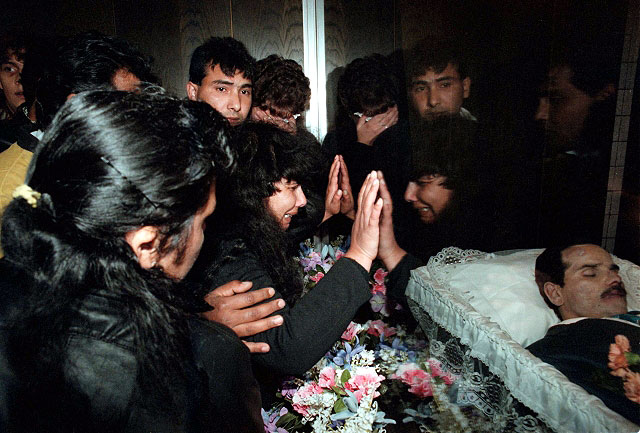 On 17 May 1998, Czech fascists claimed their 30th Romani victim: Milan Lacko, was attacked by skinheads in Orlová, as he protected his daughter Denisa and her boyfriend Mirek from the nazi gang who threw glasses and shouted “Niggers! Fags!” at the three Roma. Milan faced the gang to give the young couple time to flee. The skinheads kicked Milan senseless and left him in the middle of the road, where a car ran over him. He did not survive.
On 17 May 1998, Czech fascists claimed their 30th Romani victim: Milan Lacko, was attacked by skinheads in Orlová, as he protected his daughter Denisa and her boyfriend Mirek from the nazi gang who threw glasses and shouted “Niggers! Fags!” at the three Roma. Milan faced the gang to give the young couple time to flee. The skinheads kicked Milan senseless and left him in the middle of the road, where a car ran over him. He did not survive.
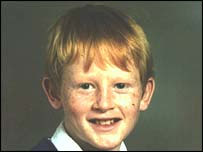 On 10 June 2003, The Guardian reported on the racist killing of Johnny Delaney, a 15-year-old boy left to die in the middle of a playing field in Ellesmere Port. “Winifred Delaney pulls a crumpled birth certificate out from inside her bra. It belonged to her son, Johnny, killed eight days ago in what she believes was an unprovoked attack. She points to his date of birth - June 12 1987. Thursday would have been his 16th birthday. The Delaneys are travelling people, living on a caravan site next to Liverpool's docks. They have come to the conclusion, based on their own experiences, that he was killed for just one thing: being a Gypsy.”
On 10 June 2003, The Guardian reported on the racist killing of Johnny Delaney, a 15-year-old boy left to die in the middle of a playing field in Ellesmere Port. “Winifred Delaney pulls a crumpled birth certificate out from inside her bra. It belonged to her son, Johnny, killed eight days ago in what she believes was an unprovoked attack. She points to his date of birth - June 12 1987. Thursday would have been his 16th birthday. The Delaneys are travelling people, living on a caravan site next to Liverpool's docks. They have come to the conclusion, based on their own experiences, that he was killed for just one thing: being a Gypsy.”
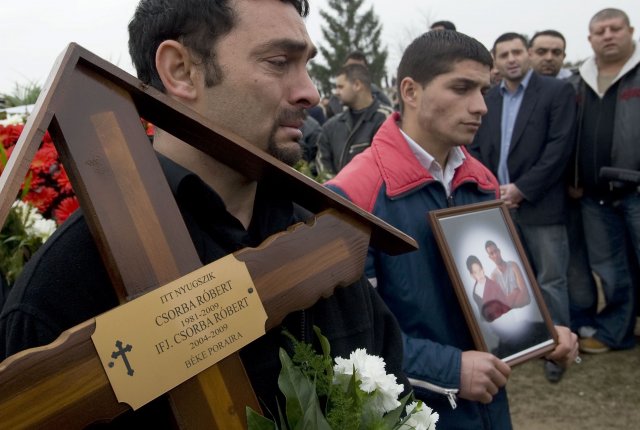 On 22 February 2009, Hungarian neo-nazis threw Molotov cocktails on the roof of a Roma house, at the edge the village of Tatárszentgyörgy, and opened fire on the fleeing family killing the father, Robert Csorba (27 years old) and his five-year-old son Robika and injuring his seven-year-old sister, Bianka.
On 22 February 2009, Hungarian neo-nazis threw Molotov cocktails on the roof of a Roma house, at the edge the village of Tatárszentgyörgy, and opened fire on the fleeing family killing the father, Robert Csorba (27 years old) and his five-year-old son Robika and injuring his seven-year-old sister, Bianka.
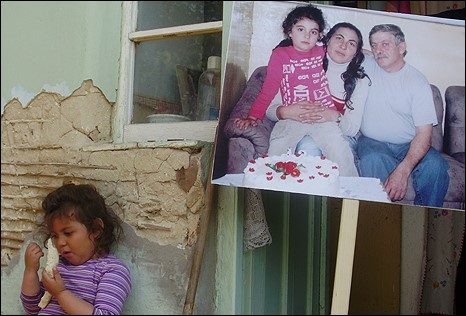 On 30 April 2009, BBC News reported that Jeno Koka was killed with a single shot to the heart at 9.30 in the evening as he left his house, number 27 Nefelejcs utca - "Forget-me-not Street" - in a Roma settlement 2km from Tiszalok, to drive to his nightshift at a local chemical works. As in every other case, the target lived in a house right at the edge of a village, enabling the perpetrators a rapid escape. They could have taken one of five roads out of town. The Hungarian police were by this time investigating 18 such attacks in the past 18 months, some carried out with both firebombs and firearms.
On 30 April 2009, BBC News reported that Jeno Koka was killed with a single shot to the heart at 9.30 in the evening as he left his house, number 27 Nefelejcs utca - "Forget-me-not Street" - in a Roma settlement 2km from Tiszalok, to drive to his nightshift at a local chemical works. As in every other case, the target lived in a house right at the edge of a village, enabling the perpetrators a rapid escape. They could have taken one of five roads out of town. The Hungarian police were by this time investigating 18 such attacks in the past 18 months, some carried out with both firebombs and firearms.
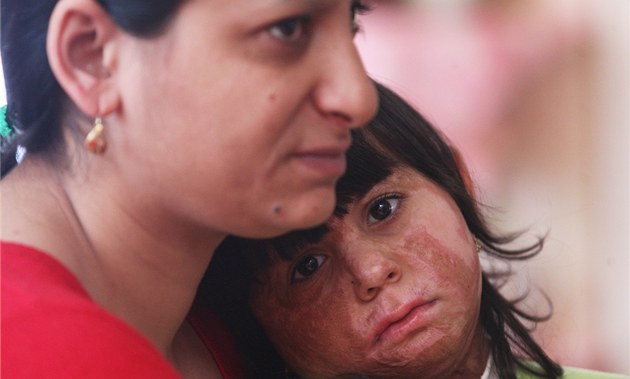 In the early hours of 19 April 2009, eighteen-month-old Natálka was rushed to hospital with severe burns on 80 percent of her body after the family’s small house in Vítkov, north Moravia was the target of a racist firebomb attack that also left both of her parents suffering from burns.
In the early hours of 19 April 2009, eighteen-month-old Natálka was rushed to hospital with severe burns on 80 percent of her body after the family’s small house in Vítkov, north Moravia was the target of a racist firebomb attack that also left both of her parents suffering from burns.
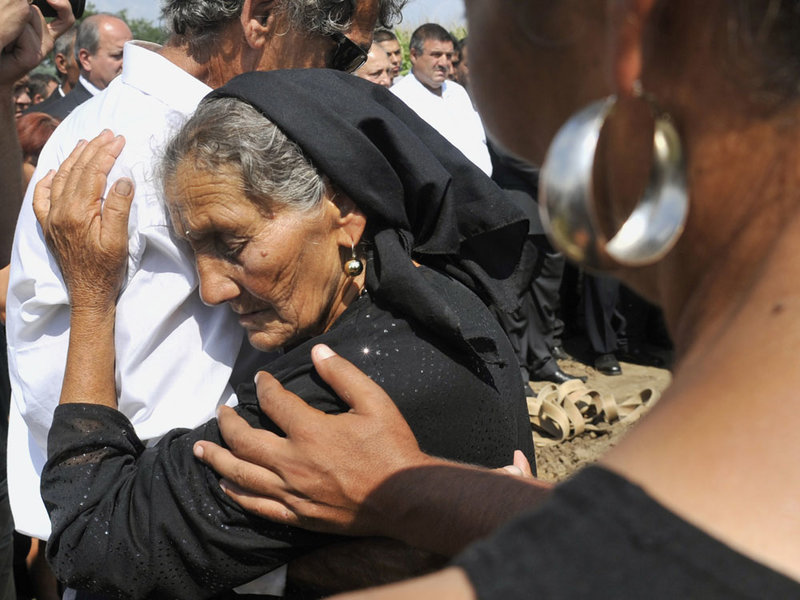 In the Hungarian village of Kisléta, on 3 August 2009, Maria Balogh and her 13-year old daughter Ketrin were asleep at home when attackers burst in and shot the mother and daughter in their beds. Maria perished in what turned out to be the last in the series of murderous attacks on Roma in Hungary. Maria’s daughter Ketrin was detailed in hospital with serious injuries. The killers–four men aged 28 to 42–were arrested at a nightclub in the eastern city of Debrecen 18 days after the murder of Maria Balogh.
In the Hungarian village of Kisléta, on 3 August 2009, Maria Balogh and her 13-year old daughter Ketrin were asleep at home when attackers burst in and shot the mother and daughter in their beds. Maria perished in what turned out to be the last in the series of murderous attacks on Roma in Hungary. Maria’s daughter Ketrin was detailed in hospital with serious injuries. The killers–four men aged 28 to 42–were arrested at a nightclub in the eastern city of Debrecen 18 days after the murder of Maria Balogh.
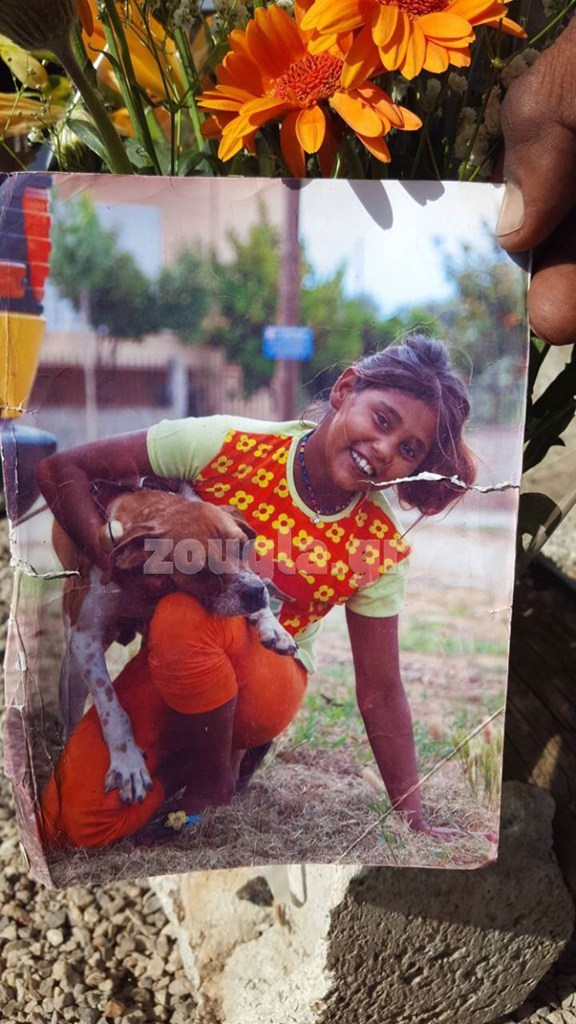 In Greece in June 2018, there were angry calls for justice from Roma following the funeral of a 13-year-old girl who was shot dead in a racist incident in the camp near the town of Amfissa. Mourners set fire to tyres and blocked the road in protest. The incident occurred at a Roma camp near the town of Amfissa, when the 34-year-old butcher drove into the camp and fired a shotgun from his truck. The bullet allegedly missed its intended victim and struck the thirteen-year-old girl. The girl’s distraught mother of the victim told a reporter “ I was here, he got a gun and killed my girl. I say my girl dead, dead.”
In Greece in June 2018, there were angry calls for justice from Roma following the funeral of a 13-year-old girl who was shot dead in a racist incident in the camp near the town of Amfissa. Mourners set fire to tyres and blocked the road in protest. The incident occurred at a Roma camp near the town of Amfissa, when the 34-year-old butcher drove into the camp and fired a shotgun from his truck. The bullet allegedly missed its intended victim and struck the thirteen-year-old girl. The girl’s distraught mother of the victim told a reporter “ I was here, he got a gun and killed my girl. I say my girl dead, dead.”
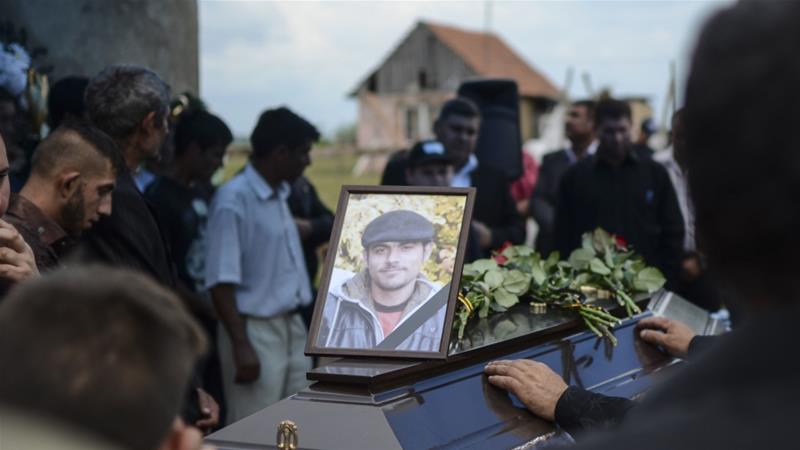 On June 2018, 23-year-old David Popp was murdered by members of a far-right nationalist gang. This murder which followed a series of anti-Roma pogroms has raised serious questions about extremism, impunity and official complicity in Ukraine. David was attacked as he slept in a shantytown on the outskirts of Lviv. A mother and her 10-year-old son were also wounded in the fascist assault on the camp.
On June 2018, 23-year-old David Popp was murdered by members of a far-right nationalist gang. This murder which followed a series of anti-Roma pogroms has raised serious questions about extremism, impunity and official complicity in Ukraine. David was attacked as he slept in a shantytown on the outskirts of Lviv. A mother and her 10-year-old son were also wounded in the fascist assault on the camp.
These are just a small sample of the brutal killings and racist attacks on Roma. The fact that the lethal force of antigypyism continues unchecked, casts a grim shadow over the European Union Roma Framework and all its lofty ambitions. Lethal summary justice, vigilante excesses and wanton bloody murder make a mockery of National Roma Integration Strategies. These killings do not occur in a vacuum. Too often anti-Roma hate speech from politicians and media has been the prelude to hate crimes such as mob violence, murder and pogroms. In the distorted minds of racists, anti-Roma hate speech is understood as a call for action. More than five year ago Thomas Hammarberg stated: “We see today a growing number of attacks on Roma committed by individuals mobilized by racist anti-Roma ideology. These are premeditated attacks, with the intent to kill, that target random individuals or families because of their ethnicity.” Anti-Roma violence often occurs where local and national politicians speak openly of the need to deal with “gypsies,” and appear to condone violent excesses as “understandable.” To this day many nativist right wing politicians both in government and opposition stand accused of incitement to racial hatred against Roma.
What is especially troubling about the wider phenomenon of anti-Roma violence in recent years is the indifference and ambivalence of the majority towards the victims. Worse still, acts of violence often prompt open support from sections of the wider public for those who would mete out rough and ready “justice” and inflict collective punishment on Roma.
On 22 July, as we remember all the victims of hate crimes, Europe’s shame is that more than 70 years after the Holocaust, so many Romani citizens live lives of dread and fear. The challenge is to banish that fear, guarantee the safety and security of all Romani citizens and ensure that the rule of law prevails without prejudice across all of Europe. It’s also a day to remind democratically elected governments that theirs is the primary responsibility to combat racism, protect lives, diffuse tension and promote respect for diversity and a shared sense of belonging among all citizens.




